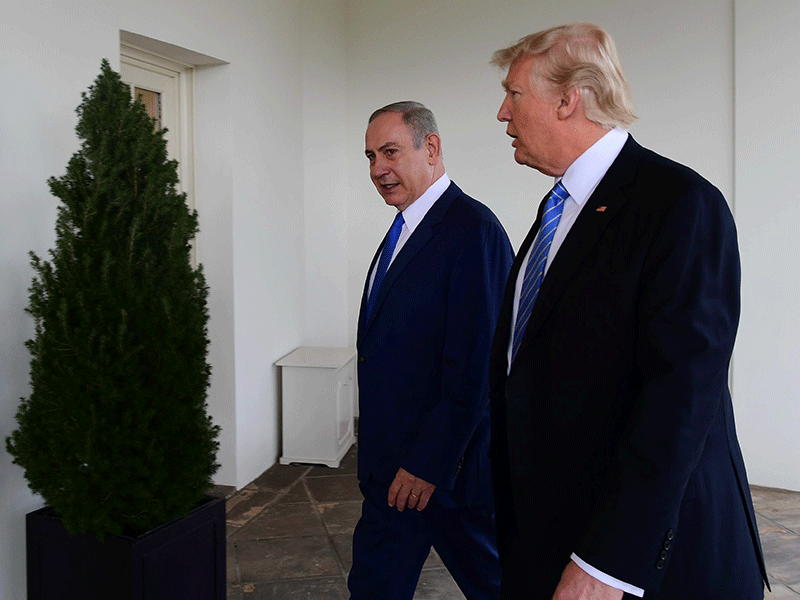Where does Donald Trump sit on the spectrum of U.S. presidents when it comes to relations with Israel?
Does the election of the unpredictable chief executive suggest a return to the warmth enjoyed by the two countries under former presidents George W. Bush and Bill Clinton, or more of the frostiness experienced under Barack Obama?
Gil Troy, a presidential historian at McGill University and CJN columnist, believes “The fundamentals of the U.S.-Israel relationship are more important than personal chemistry,” though he added that chemistry is significant.
READ: SHOULD JEWS SUPPORT M-103? A CJN DEBATE
“Nations are unlikely to ‘break up’ because their leaders don’t get along, but a warm click between Trump and [Israeli Prime Minister Benjamin] Netanyahu can reassure Israel and is more likely to lead to constructive progress than the destructive dynamics between Obama and Benjamin Netanyahu did.”
Troy will present his analysis of “Israeli Relations in the Trump Era” at a public event at Holy Blossom Temple on March 28. The lecture is sponsored by Holy Blossom Temple, the Canadian Zionist Federation and The CJN.
Troy believes that following the chill under Obama, who he acknowledges “did some good things for the Jewish state,” Trump is merely “reverting to the mean.”
“If it leads to an even closer relationship remains to be seen – all presidents are unpredictable, but Trump is truly unpredictable.”
Nevertheless, there are early suggestions of where the relationship might lead. Trump and Netanyahu “are wary of the [Iranian] regime and the [nuclear] accord, and that could open all kinds of strategic avenues,” he said.
“Progress can occur only when the Palestinians feel pressed and the Israelis feel spoiled, or at least comforted,” Troy
added, drawing a contrast to what he called Obama’s “foolish” view.
READ: DOES FUNDRAISING THAT PLAYS ON FEAR HAVE A FUTURE?
The Middle East has changed considerably in the last few years, Troy stated, thanks in part to the unintended consequences of Obama’s policy.
The former U.S. president “helped unite the Saudis, Egyptians, and the Israelis,” leading to a vastly different Middle East than in the past.
“Anyone who approaches the Mideast in 2017 thinking it is the Mideast of 2009 or 1989 is naive. A great leader needs to shape a new alliance that creates new and more stable regimes and coalitions. That’s the goal,” he said.
